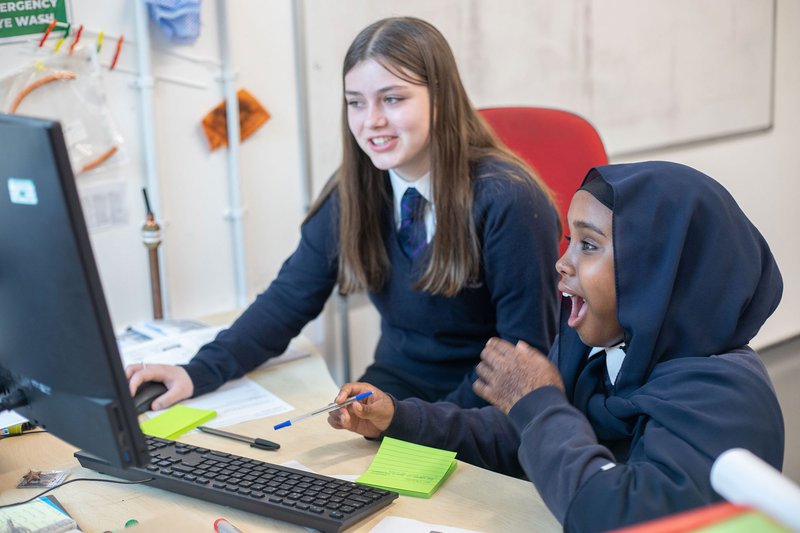One provocation, lots of opinions
We The Curious (WTC) embarked on a journey to enhance their digital content by making it more participative.
With the support of STFC funding, WTC partnered with City Academy Bristol to deliver a series of hands-on workshops to Year 9 and Year 10 pupils. The workshops encouraged participants to explore the question, “Should space science be a priority in the current time of crisis?”
The STFC funding allowed WTC to facilitate six workshop sessions involving two classes and three specialists. Over 14 hours of participatory discussions and debates took place, centred around the theme of space science. The workshops provided a platform for the students to interact with specialists working in research funding, environmental research, and the space industry. By engaging in these sessions, the students developed their ideas and explored various aspects of the topic, leading to the creation of TikTok-style videos to authentically express their perspectives.
I am very excited to hear young people’s opinions on space science. I think it’s so important that we listen to them and guide our efforts knowing that perspective.
Gemma Kerr, Content Creator, We The Curious

The students surprised both the experts and the WTC team with their complex, insightful, and diverse thoughts and opinions. The range of space-themed videos produced by the young participants reflected the deep conversations and interactions that underpinned their creation. One group delved into exploring different aliens’ cultures on Venus and Mars, influenced by conversations around cultural heritage and diversity in the UK. Another group highlighted the historical prejudices faced by female astronauts and the gender biases in the design challenges faced by women in the International Space Station. Additionally, some students expressed scepticism about space exploration, believing that resources should be focused on solving problems and exploring Earth.
They also discussed inequalities within the space industry and criticized the privileged position of billionaires in space travel.
The insights gained from the workshops surprised space industry specialist Adele Fox, who initially expected the students to be more excited and inspired by the sector. The negative views expressed by the students emphasised the need to challenge their perceptions and highlight the potential for the space industry to contribute to the betterment of humanity.
We want to do this with more schools…What has become clear is that just with one year difference, going from key Stage 3 to Key Stage 4, you see this huge difference in the way that the kids are responding. What happens when you talk to six formers, and what happens if you talk to groups from different schools? I think that is really interesting.
Adam Richardson, Digital Producer, We The Curious